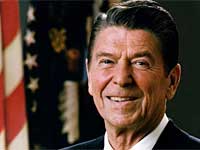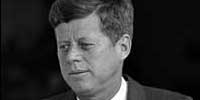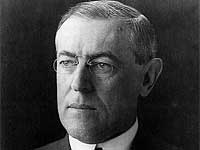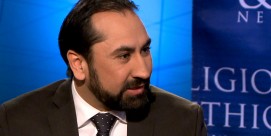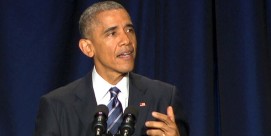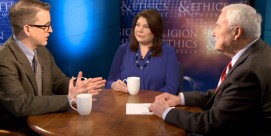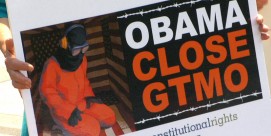Leo P. Ribuffo: President Obama
An African American running against a white war hero was elected president by a margin of roughly 6 percent. This is an extraordinary event no matter how pollsters slice and dice the returns and no matter how rebuilding Republicans spin the outcome. Yet it portends — or, perhaps more accurately, it ratifies — significant social and cultural changes in American life rather than major shifts in United States economic and foreign policy.
Obama is the first Democratic presidential nominee since Jimmy Carter in 1976 to win a majority of the major party vote. The Democratic congressional gains are also notable. Yet neither victory is nearly as impressive as the Lyndon Johnson-led Democratic landslide of 1964 or the Republican capture of the Senate after 26 years in the Reagan semi-landslide of 1980. In 2008, while many Republicans apparently stayed home, Democratic constituencies were retained, expanded, and mobilized. Some swing voters were switched — primarily because the country has entered a recession.
Yet there are notable continuities. Despite media hoopla about the latest “new evangelicals” (the children, literal or metaphorical, of the earlier “new evangelicals” of the 1970s), 74 percent of white Protestant theological conservatives voted for Republican John McCain; the small fall off from 2004 can be attributed to the recession and a bit of generational change. Similarly, McCain carried non-Hispanic white Roman Catholics. Although little noticed, the Electoral College remains a nightmare waiting to happen — again. The switch of a total of a million votes in Ohio, Florida, Indiana, Virginia, North Carolina, and Colorado would have made the outcome very close. Indeed, if Obama’s popular margin had been 2 percent, he might well have lost the Electoral College and been denied the presidency by this constitutional relic.
A president does not need a “mandate,” whatever this ubiquitous cliché may mean to pundits and politicians, in order to accomplish important things for good or ill. He needs loyal support from a congressional majority (as Woodrow Wilson demonstrated despite having received roughly 40 percent of the vote in the multiparty election of 1912), a demoralized and cowering opposition party (for example, the Democrats Ronald Reagan intimidated during the 1980s), and/or a widespread sense of national crisis (which empowered Franklin D. Roosevelt during his first term and Reagan to a lesser extent). Given the oscillation between missionary triumphalism and apocalyptic foreboding that characterizes the American temperament, the sense of crisis can derive from a real emergency, such as the Great Depression and the rise or Nazism during the 1930s, or from serious problems that nonetheless can be managed through relatively small adjustments in a rich and stable country.
With customary irresponsibility, the mainstream news media have recently suggested that the world teeters on the verge of an economic crisis comparable to the Great Depression. Campaigning Democrats joined in the hyperbole — though sometimes they referred with greater (if little noticed) nuance to the greatest financial crisis since the 1930s. A replay of the Great Depression with 25 percent unemployment is unlikely, not least because of government programs created then. We should contemplate how recent bank runs would have cascaded if the New Deal had not begun insuring deposits.
Still, the economic situation looks bad enough without hyperbolic allusions to the 1930s. Nor do we need to look back that far for a useful analogy. From the early 1970s to the early 1980s, the United States along with most of the world struggled through a chronic economic mess. The persistence of “stagflation” then was different from the classic recession building now, yet the problems were comparably serious. Both unemployment and inflation rates routinely approached 7 percent and often rose higher. The draconian solution to stagflation, engineered jointly by President Reagan and Federal Reserve Board Chairman Paul Volcker, centered on a deep recession in the early 1980s with unemployment reaching roughly 10 percent.
Reagan used the widespread sense of crisis to mobilize support for venerable conservative goals only tangentially related to the immediate economic problems. This story is complicated. Simply put, however, the conservative Republican program included union busting, compulsive deregulation, and an ideological assault on activist government. Reagan ironically mirrored his youthful hero FDR, who supported, albeit sometimes reluctantly, a large liberal agenda tangentially related to and sometimes inimical to quick economic recovery. The results included Social Security, mass unionization, and an ideological affirmation of an activist federal government.
Obama’s situation is much closer to Reagan’s than to Roosevelt’s. The most optimistic economists and business leaders predict a recession lasting at least a year, with unemployment rising at least to 8 percent. Even if these prognosticators are correct, and they are probably too optimistic, an economic recovery in some technical sense will bring no quick relief to most of the population. Nor, judging from past behavior, will voters be much more consoled in the near term about the country’s “right direction.” Unemployed and under-employed Americans were unimpressed when, in late 1976 and 1992, Presidents Gerald R. Ford and George H. W. Bush respectively kept asserting, as their economic advisers assured them, that the recessions had ended. Fairly or unfairly, after a year voters will regard the recession as Obama’s responsibility rather than George W. Bush’s legacy.
As Obama has said, economic recovery is his first priority. His administration’s specific actions will depend largely on the depth and length of the recession. Ten percent unemployment lasting several years would increase public support for government-created jobs as well as expenditures to repair the decaying national infrastructure. Whatever happens, Obama should take advantage of the sense of crisis and (partial and perhaps temporary) conservative demoralization to move beyond the politics of immediate economic recovery. Now may not be the best time, from an economic perspective, to pass some sort of national health insurance, but it may be the only time, in political terms, for a long while. Even with the best of luck, further expansion of the welfare state will be difficult. Without openly admitting it, conservatives have lost almost every battle in the four-decade-long ideological conflict over race, gender, and sex; only in abortion policy can we find an ambiguous draw in national opinion.
Without this liberalization in everyday life, Obama would never have been nominated, let alone elected. Conversely, conservatives have won the ideological debate over the role of government in the economy. In his famous 1962 speech endorsing Keynesian economics, John F. Kennedy mocked the notion that government was “big and bad — and steadily getting worse.” Since 1976, however, Democratic presidential nominees have joined in the ritual of assailing the big, bad government. Jimmy Carter believed what he said. Bill Clinton did not. Neither does Obama, if I read him correctly between the lines. His gut feeling seems to be that government policy should enhance economic equality. As he wrote in THE AUDACITY OF HOPE, “The rich in America have little to complain about.”
Obama has shown no sign that he will try to govern on the basis of his gut feelings. Indeed, such an approach runs contrary to his intellect and personality. His desire to think through hard issues is admirable. His willingness initially to seek agreement with opponents may also serve him and the country well — as long as he knows when to stand firm and recognizes that many opponents have no interest in compromise. Since the so-called Progressive era before World War I, conservatives have typically over-reacted to the incremental creation of a regulatory-welfare state that is small by Western European standards. Even their rhetorical continuity is impressive. Senator McCain’s charge that the Democrats planned to usher in a vaguely un-American “socialism” would have sounded depressingly familiar to FDR, Harry Truman, and John Kennedy. Unlike McCain, many conservatives really believe this allegation. Equally evocative of old times is the denunciation already begun, not only on Fox TV but also on the business cable channels, of the frequently blocked liberal proposal that would allow workers to unionize by checking a card instead of voting in full-fledged elections. These conservatives are neither demoralized nor conciliatory.
Perhaps the best sign that conservatives have thus far won the economic debate since the 1960s is the conventional wisdom issuing from establishment pundits at places like CNN and the Washington Post: Obama must govern as a “centrist,” which means he must beware of pressure from such lefty liberals as House Speaker Nancy Pelosi and Senate Majority Leader Harry Reid. If Hubert Humphrey is looking on from somewhere, he must be laughing or crying. On economic matters, the Democrats in Congress are less liberal than their counterparts were during the Carter administration — who were less liberal than their counterparts during the Johnson administration. Moreover, the so-called center is not a fixed point on some cosmic ideological tape measure. Leaving aside the issue that the right-center-left model of politics did not become the standard in our political talk until the 1940s, we can at least recognize that Obama and the Democrats have a chance to redefine what voters consider the legitimate middle ground.
At some propitious point during his first year President Obama should consider declaring, in a reversal of Reagan’s famous quip, that government isn’t the problem but often the solution to problems. And if the dominant public response ranges from neutral to positive, he should say so over and over again. On some level Americans grasp this reality. Even many office-holding conservatives acquiesce in it. When the Great Depression engulfed Herbert Hoover, the federal government constituted less than 4 percent of the gross national product (GNP). For the past generation, including the Reagan evolution, the government share of the GNP has bounced around 19-20 percent.
Judging from Obama’s longest single discussion of the subject, his chapter on “The World beyond Our Borders” in THE AUDACITY OF HOPE, his characteristic thoughtfulness extends to foreign policy. He rejects the standard celebration of nineteenth-century expansion, acknowledges the moral ambiguities of American actions during the Cold War, and understands that the Bush Doctrine of preemptive intervention has precedents stretching back at least to Theodore Roosevelt’s decision to police Latin America. The question nonetheless remains: how much does presidential thoughtfulness matter in the making of foreign policy, especially during crises or perceived crises. Sometimes quite a lot. We probably would not be here if President Kennedy had been unwilling during the Cuban missile crisis both to empathize with the Soviets and to accept a secret compromise. Even so, the missile crisis might have been avoided in the first place if Kennedy had reconsidered his Cold War premises beforehand.
The Cold War is over and, despite glib claims to the contrary, the world is much safer now than it was then. If an escalation of the Cuban missile crisis had cost 3,000 lives instead 30 million (a standard estimate of casualties in a “limited” nuclear war), Americans would have been grateful indeed. The problems of the past only seem simpler because they happened in the past.
Thoughtful or not, anyone currently electable as president accepts American assumptions about the world that have changed less in fifty years — or two hundred years — than our approach to domestic issues. These attitudes were codified most eloquently by Woodrow Wilson, and Obama, like all presidents since Wilson, is a Wilsonian of sorts. He aspires to spread American ideals, which he characterizes with the customary pairing of “free markets and liberal democracy.” Beyond this basic framework, Obama on the campaign trail engaged in some ritual bashing of Russia, China, Middle East oil states, and even Iraq. We can hope that such comments reflect political opportunism.
In private in the dead of night, a thoughtful and cosmopolitan Barack Obama may mull over some questions considered heretical not only by Republican neocons but also by the post-Cold War cold warriors who dominate the Democratic foreign policy establishment. Shouldn’t we try to understand why Russians did not want NATO pushed to their borders and now oppose parts of a missile defense system in Poland? Isn’t it hard to fully democratize the most populous country in the world, and shouldn’t China’s extraordinary recent accomplishments receive greater public respect? Don’t the oil states have as much right to keep their petroleum in the ground in order to maximize profits as the United States has to refrain from mining coal in order to protect the environment? And isn’t criticizing Iraq for anything at this point the classic case of blaming the victims?
Even if such questions never cross his mind, Obama sounds like one of the relatively prudent Wilsonians. He is “skeptical that we can single-handedly liberate others from tyranny.” He urges consultation with foreign governments not only as a diplomatic nicety, but also because their doubts about a policy might help the United States to “look before we leap.” This is the good news. The bad news is that establishment advice and political pressure may cause him to leap no matter how lousy the landing looks. Jimmy Carter, a fellow devotee of Reinhold Niebuhr’s Christian realism, knew in his mind as well as his gut that admitting the deposed Shah of Iran to the United States posed a terrible risk. He was persuaded to leap anyway.
–Leo P. Ribuffo teaches history at George Washington University.

